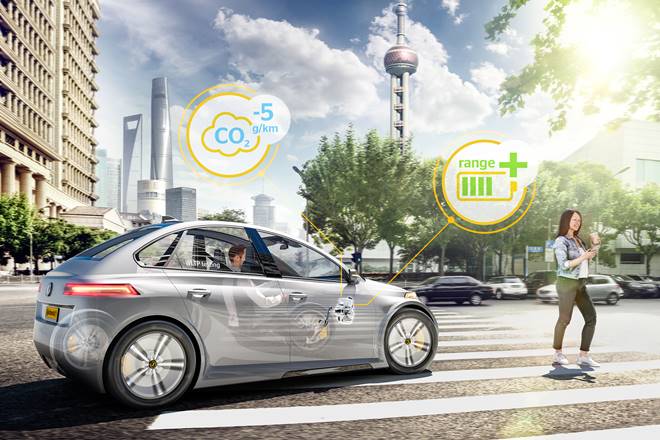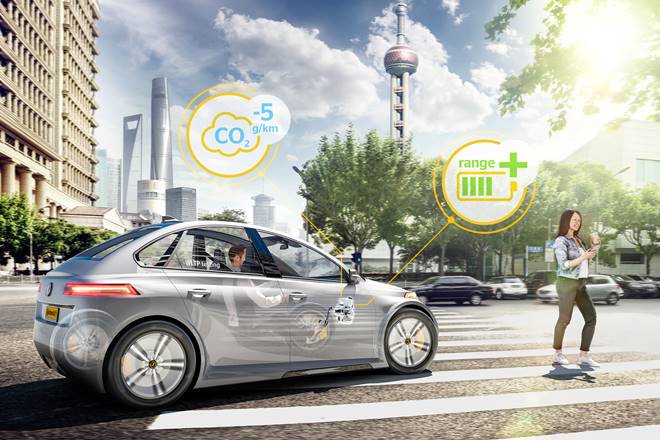
One of the largest automotive components manufacturers in the world Continental is marking the 50th year since it first introduced ABS in the market. Ever since it has come to be one of the most recognised names among ABS suppliers across international markets. As India steps into the future of mobility – electric and autonomous – along with the heightened need for enhanced safety in vehicles today, Continental has new technology to tell us about. To learn more about the brand and its venture into new technology for future mobility, we spoke with Krishan Kohli, Business Head – Vehicle Dynamics, Continental.
Continental ABS and Brake Systems
Kohli walked us through a quick history tour of Continental ABS, noting that the very first anti-lock braking system MK I was introduced in Frankfurt, Germany in 1969. The commercial series production of MK II ABS started in 1989 when Continental introduced the system for the assembly line. Before this, ABS was offered as a retro fitment for cars. Subsequently, Continental introduced TCS (traction control system) and EBD (electronic brake distribution). It was in the year 1995 when Conti introduced ESC (electronic stability system).
Beginning with MK I in 1969, Continental is today using MK 100 ABS system. Besides this, Kohli also told us about the upcoming MK C1 which is a pioneering one-box solution that includes brake-by-wire, energy recuperation to ultimately reduce CO2 emissions. The platform has already been commercialised in markets like the US, Europe, and China. More on MK C1 platform to follow.
Continental in India Today
Continental in India has a comprehensive portfolio of ABS for two-wheelers – single- and dual-channel. Kohli tells us that 70-80% demand for ABS packages come for single-channel units for smaller displacement motorcycles. Considering a wide market for single-channel ABS, Continental has developed the lightest ABS package that weighs in only at 420 gm.
Besides ABS, Continental understands that ESC adoption in cars will eventually increase and so the manufacturer is localising production of ESC systems as well.
Brasilia Declaration on Road Safety
Under the Brasilia Declaration which was signed in 2015, India had also pledged to halve the number of road accidents in the country by the end of this decade. On the pretext of this agreement, the government has introduced safety regulations, for example, mandatory ABS in two-wheelers 125cc and above.
Compared to 2017, when a WHO report mentioned that India witnessed 16 fatalities per hour due to road accidents, the consumers are now better aware of safety features and are willing to pay 2 or 3% more for added safety features like ABS. However, it is an evolutionary process and India will need more time to get to safety features like autonomous braking.
Continental in India tomorrow
Continental had long introduced ABS for passenger cars and two-wheelers, and the next step for automobiles in India will be mandatory ESC and autonomous braking, which Conti already has it its portfolio. Earlier this year, Continental showcased its autonomous braking system to us in a test vehicle as well. Kohli added that ESC adoption currently stands at 25-30% in India and would boom to 100% by 2023.
However, Kohli explains that considering traffic behaviour in India, level 1 or 2 of autonomous braking may be feasible but level 4 and 5 will be a long way away.
India is stepping towards acceptance to electric mobility and now we have a lot more EVs than we did before. Speaking of ABS for hybrids and EVs, Kohli explained that the basic functioning of the system remains the same besides some software changes. “Conti is ready with tech for EVs,” Kohli said.
About advancement in braking tech for two-wheelers, Kohli says that single- and dual-channel ABS would service India’s two-wheeler market for about 6-7 years post which Continental will introduce integral braking (integrated braking on front and rear for 500c and above), which has been commercialised in European markets.
Continental Technology Day: Technologies for mobility – electric and autonomous
MK C1 Brake System
As for MK C1’s introduction in India, Kohli told us that it is still a couple of years before this platform will adaptable to Indian conditions. He further added that Continental hopes for technological maturity in India by the end of the decade so MK C1 can be rolled out here.
The MK C1 is in production since 2016 and is in use in international markets. It uses brake-by-wire design and Continental says that it enables recuperation of braking energy in a much wider range than standard regenerative brake systems, reducing CO2 emissions of hybrid electric vehicles by around 5 g/km and extending the electric range of all battery-powered vehicles with savings of around 30% regenerative energy compared to a non-simulator brake system.
This measurement has been made according to the WLTP (Worldwide harmonized Light vehicle Test Procedure) and confirmed by the TÜV, a German Technical Inspection Association. The “One-Box” system integrates the tandem master cylinder (TMC), brake booster and control systems (ABS and ESC) into a single compact and weight-saving (approximately 30%) module. Continental’s MK C1 can build up braking pressure in 150 ms (time-to-lock), which is twice as fast as conventional systems today.
























